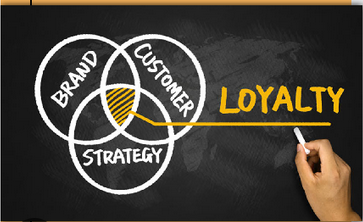The global loyalty management market is on a compelling growth path, projected to scale from USD 5.0 billion in 2024 to approximately USD 22.9 billion by 2033.
With this, it reflects a compound annual growth rate (CAGR) of 17.63% over the forecast period.
This expansion is being propelled by businesses shifting toward deeply personalized and customer-oriented loyalty frameworks aimed at driving retention, brand affinity, and repeat behavior.
Shift Toward Long-Term Relationships
As competitive pressures intensify across industries, organizations are realigning their focus from customer acquisition to long-term relationship cultivation.
They are leveraging loyalty platforms built around behavioral insights, tailored rewards, and multi-channel experiences.
According to analysis by IMARC Services Private Limited (2025), this customer-first paradigm is not only enhancing lifetime value but also emerging as a cornerstone of sustainable growth in the digital economy.
Redefining Loyalty Management
Loyalty management refers to the systematic execution of tools and strategies to encourage repeat customer behavior, increase brand affinity, and maximize customer lifetime value.
Modern loyalty programs have evolved beyond traditional point-based systems to become comprehensive customer engagement ecosystems.
Therefore, this new shift is fueled by data analytics, artificial intelligence, mobile technology, and personalization engines.
Precisely, the findings affirmed that in the current hyper-competitive and digitally saturated marketplace, cultivating customer loyalty is no longer optional—it is a strategic imperative.
Businesses across sectors are investing heavily in intelligent loyalty platforms that offer tailored rewards, predict purchasing behavior, and strengthen emotional connections with consumers.
Key Growth Drivers
The report explained that the acceleration is attributed to several key drivers, including the proliferation of digital commerce, demand for individualized experiences, and the strategic value businesses place on customer retention amid rising acquisition costs.
Customer Retention as a Growth Lever
Through its data, the report indicated that enterprises are increasingly prioritizing customer lifetime value over transactional relationships.
It also showed that personalized loyalty initiatives ranging from exclusive offers to experience-driven rewards are proving to be essential tools for maintaining consumer engagement and reducing churn.
This customer-first approach is a powerful engine of recurring revenue.
Digitization and Mobile-First Engagement
Furthermore, the report revealed that the global shift toward mobile and omnichannel engagement is redefining how loyalty programs operate.
Although, digital wallets, real-time offers via apps, and location-based rewards are enhancing user convenience and interaction, thereby increasing adoption rates.
Meanwhile, social integrations and mobile push notifications are also contributing to deeper, more dynamic customer connections.
Intelligence-Driven Personalization
Accordingly, with the growing importance of data as a strategic asset, loyalty management solutions are leveraging advanced analytics, machine learning, and automation to deliver hyper-personalized experiences. These insights empower brands to fine-tune their campaigns, optimize spend, and continuously enhance user satisfaction.
Segment Highlights
The findings also revealed several segment trends:
- Customer Loyalty emerged as the dominant segment, accounting for the largest share. Rising consumer demand for personalized treatment and emotional brand alignment is pushing businesses to invest in loyalty programs that go beyond transactions and deliver memorable experiences.
- Large Enterprises hold the lion’s share of the market, driven by their ability to deploy complex loyalty systems at scale, manage large datasets, and derive actionable insights for customer engagement strategies.
- On-Premises Solutions lead the deployment mode segment due to heightened concerns over data security, privacy, and regulatory compliance, especially in sectors like finance and healthcare. These solutions allow deeper integration with existing IT infrastructure and higher customization levels.
Again, according to the analysis of the report, the retail sector stands at the forefront, using loyalty solutions to boost shopper retention, analyze behavioral trends, and create seamless omnichannel experiences.
As digital retail grows, loyalty programs are becoming central to consumer-brand interaction.
Competitive Landscape
In addition, the loyalty management market is fiercely competitive, featuring a mix of legacy providers and emerging disruptors. Key players are focusing on expanding their AI capabilities, enhancing integration with CRM and payment systems, and introducing real-time engagement tools.
Some of the major companies profiled include:
- Oracle Corporation
- SAP SE
- Fidelity Information Services Inc. (FIS)
- Epsilon Data Management LLC
- Bond Brand Loyalty Inc.
- LoyaltyLion
- Comarch SA
- Kobie Marketing Inc.
- Annex Cloud
- ICF International Inc.
- Paystone Inc.
- TIBCO Software Inc.
Interestingly, these firms are investing in strategic alliances, product innovation, and geographic expansion to maintain competitive positioning.
Looking Ahead
So, as digital transformation continues to redefine customer expectations, loyalty management is evolving from simple reward systems to sophisticated platforms that drive customer intimacy, brand differentiation, and long-term value.
Equally important, it shows that companies that embrace intelligent, personalised, and omni-channel loyalty strategies will be best positioned to capitalize on this USD 22.9 billion market opportunity by 2033.
Watch Also: MARKETING EDGE ONTV






Comment
No comments found.